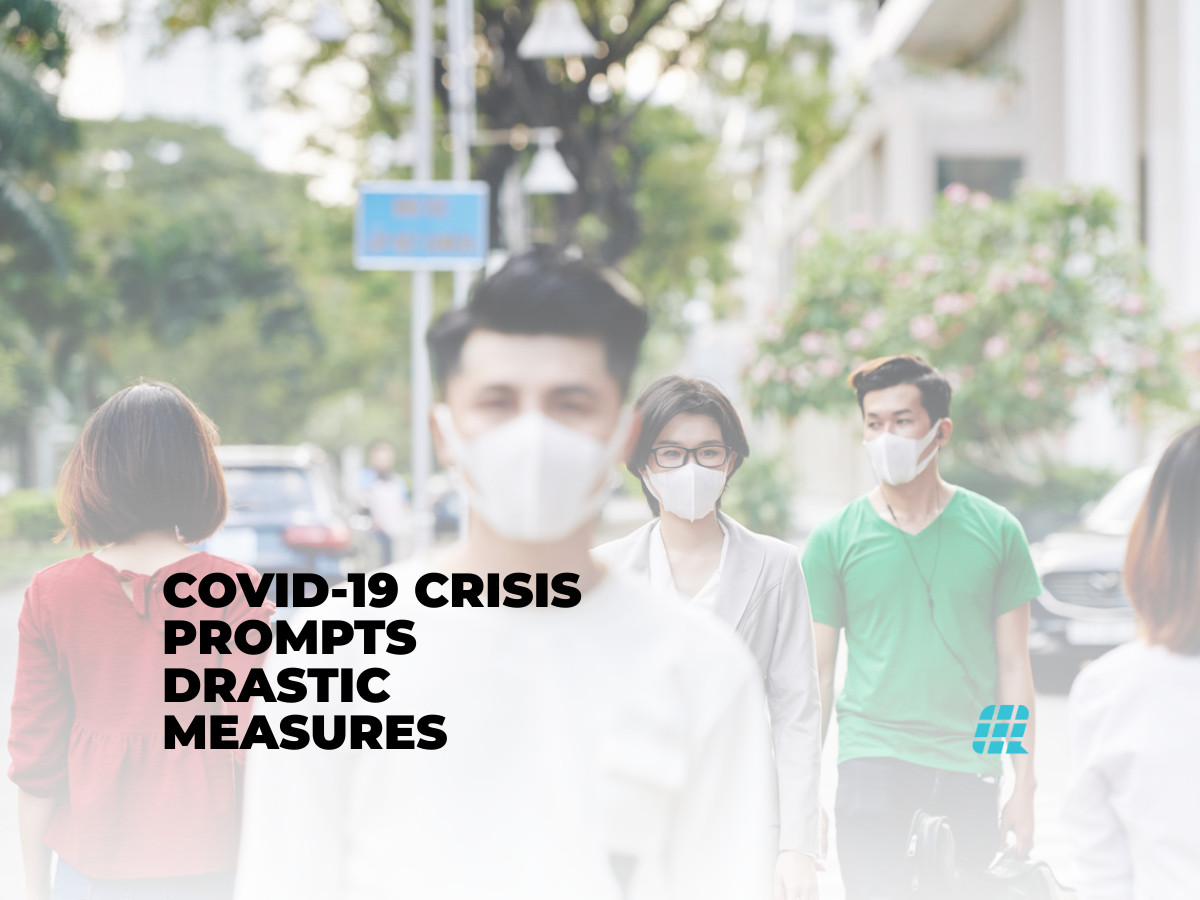The coronavirus crisis has profoundly affected businesses worldwide. From the smallest one-person digital startup to the biggest corporations in the world, business leaders right now are making make-or-break decisions to ensure their survival.
In many places, businesses are shut down by government order. Even those that remain open are dealing with the fallout from the crisis. People are starting to realize that the global effects of coronavirus are long-term, not short-term. Many have stopped buying things they don’t need and instead are panic-buying essentials like canned food, toilet paper, and medicine.
At this point, serious questions need to be considered by business owners:
- Can you afford to wait out the crisis even if it lasts two months or longer with dramatically reduced income?
- Should you continue to pay vendors, landlords, and bank loans or risk having your credit damaged through late payments or even defaults?
- What can you do to protect your employees while still making smart decision for your business?
- How can you effectively market your business in a global environment of anxiety, despair, and panic?
These are serious questions for serious times. And the answers you come up with are bound to affect your business for years to come.
Future Outlook
In times of crisis, business owners need to face the hard numbers:
- How much cash do they have on hand?
- How much income can they realistically expect?
- How long can they hold off creditors?
- What are their anticipated expenses and what can be cut?
Running the numbers offers a sober reality about how long you can expect to keep your business running.
The first thing many business owners need to do is to learn more about their options for maintaining their cash flow. Contact your bank, your landlord, and your loan manager to discuss options for temporarily suspending payments.
Look into what government programs are available to ease the pain of the COVID-19 drop off. In the US, lawmakers recently approved a $2 Trillion aid package that includes billions for low- or no-interest small business loans. Make sure you are the first in line for any aid for which your business qualifies.
If you do have cash on hand or other capital, consider stocking up on necessary items or investing while prices are still low. Sooner or later the market is going to rise and when it does, prices will too. If you can get ahead of the curve now, it might be a smart business decision.
COVID-19 – The Employee Dilemma
All business owners want to take care of their employees. But if there is no income, it’s difficult if not impossible to keep paying people.
The best thing you can do right now is to have a plan and communicate it to your workers as best you can.
If you haven’t already allowed people to work from home and it doesn’t disrupt the flow of your business, do it now. Protecting people’s health by limiting their exposure to each other and the virus must be your top priority.
If people must come into work, implement a plan to regularly clean and disinfect any surface people might touch. Allocate latex gloves, face masks, and any other personal protective equipment that you can get our hands on. Enforce social distancing recommendations.
Be transparent about what you are doing to protect people’s jobs. Your workers will be loyal to your business if they know you are doing everything in your power to take care of them.
If you must lay off workers, make sure to stay in touch with them regularly and provide updates on when they can expect to return to work. If you can afford to keep paying them, if only for a short time, the goodwill may be a good investment in your business’s future.
Make available information about unemployment benefits, food distribution, and other government and charitable aid that can help them get through until they can come back to work. And be human: Check in regularly with your people often to see how they are doing.
COVID-19 – Marketing Choices
Thanks to social distancing, social media platforms like Facebook and Twitter are enjoying some of their highest traffic volumes ever. But their ad revenues are shrinking because companies don’t want to advertise products people aren’t buying right now.
Spend your marketing dollars wisely. Rather than buying expensive ads, shift your focus to things like email blasts to customers that inform them what your business is doing to help the community. Stay active on social media, providing updates about things like business hour changes, store closures, and product availability.
Take steps to make your business as accessible as possible to customers, even if you have to shut down temporarily.
A lot of Main Street small businesses that have shut down have posted signs in their windows informing customers that they are closed but don’t offer any way of contacting them to find out when they are reopening. Get your phone number email address, and social media contacts out there so you can continue to interact with people.
Serve Your Community
Finally, do everything you can to take care of the people in your community, even if it doesn’t directly benefit your business’s bottom line. Crisis like this are a test of people’s character. So the choices you make now will affect the way people see you and your business once all of this is over.
Remember, for many people this literally is a fight for survival. We are all in this together. Be a good citizen, make the best decisions for people, and serve your community first. Be a good person and the rewards will follow later.





No comment yet, add your voice below!